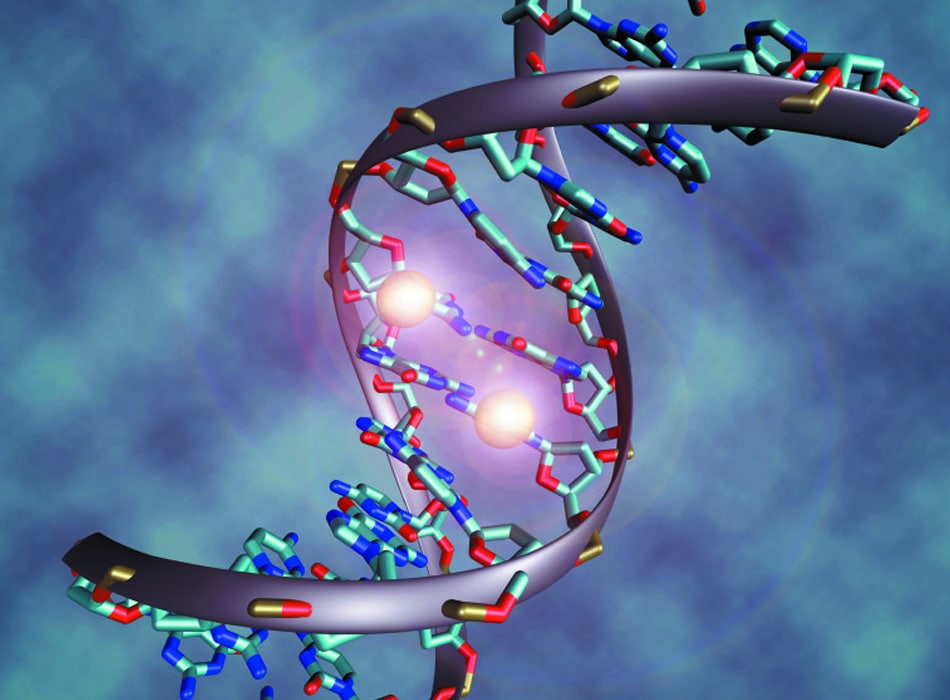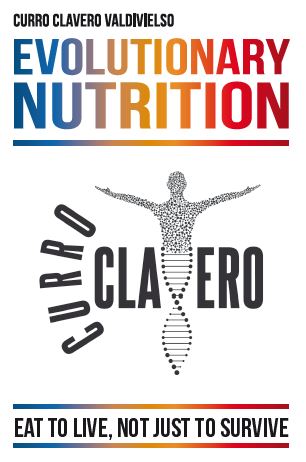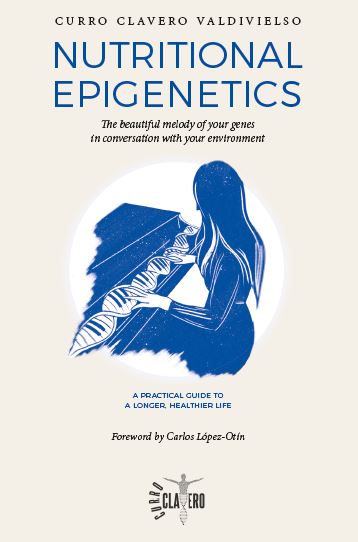In my next post, I’ll be introducing my latest book (Nutritional Epigenetics): what it’s about, a summary of what you’ll find in it, and the scientist (who I believe is the world’s leading expert in genes and longevity) who helped me enhance its content and wrote the foreword.
But today, I want to give you a sneak peek into all of that. Below is an excerpt from the beginning of Chapter 1, where I explain what epigenetics is, how it differs from genetics, and how both impact our health and longevity.
Everyone knows that genetics plays a role in our lives. But what many don’t realize is that the relationship goes both ways: our life—our habits—can also influence our genes through epigenetics. Let’s break it down.
Here’s the excerpt.
What Is Epigenetics?
Let’s start with a technical definition: epigenetics is the study of changes that regulate how our DNA is expressed—without altering its sequence. This field focuses primarily on two mechanisms: (1) DNA methylation and (2) histone modification. In simpler terms, epigenetics explores how habits and our environment can cause changes in how the information in our DNA is interpreted—without changing the DNA itself. Let’s take a closer look.
In our biology, there are two types of information:
- Genetic: This is the information stored in our DNA. It’s what we inherit from our parents and remains fixed throughout our lives—we’re born and die with it. It’s a set of encoded instructions that guide our development and biological functions; essentially, it’s our “birth manual.”
- Epigenetic: This refers to the system that can change and regulate how that genetic information is used. Epigenetics determines how the DNA’s instructions are carried out in each cell—for instance, which genes should be turned on and which should remain silent. This allows, among other things, for cellular differentiation: that is, how each of our cells (which are genetically identical) can carry out thousands of different functions. For example, an eye cell contains the same genetic information as a liver cell, but it’s the epigenome that, by switching certain genes on or off, allows those cells to differentiate and perform their specific roles.
The epigenome tags and untags our DNA with chemical markers—like methyl groups (which silence genes and DNA regions) and acetyl groups (which activate them)—but it doesn’t alter the DNA itself. Imagine a vase with a post-it note that says “fragile, do not touch.” The vase is exactly the same, but that added message helps protect it and lowers the risk of damage.
As Carlos López-Otín explains in his book Life in Four Letters: “The genome stores information, while the epigenome organizes it […] the epigenome is like the grammar or punctuation of the genome […] epigenetic changes function like accents, commas, diaereses, or periods that give grammatical meaning to the genetic message and reflect the dialogue between the genome and the environment in which life develops […]. Thus, depending on our diet, temperature, physical activity, or emotions, epigenetic changes occur in the form of DNA methylation or histone modifications that determine whether the information encoded in the genome is expressed or not, whether genes are activated or silenced, whether they speak or remain silent.”
In short, epigenetics is the way our DNA’s information is interpreted in response to changes triggered by environmental factors. As we’ll see, this process plays a major role in shaping our lives.
Genetics vs. Epigenetics: Which One Matters More?
Now that we have a clearer understanding of what epigenetics is, a natural question arises: Which is more important for our health—genetics or epigenetics? The answer isn’t simple, and—as always—it depends on the context. Both play essential roles, but in complementary and distinct ways.
Our genetics provide the starting point—the instructions we’re born with—determining factors such as our predisposition to certain diseases. These genetic traits are fixed and don’t change throughout life, although they do influence many aspects of our health and development.
Epigenetics, on the other hand, modulates how that genetic information is expressed, allowing it to adapt to our environment and the changes we go through. It’s influenced by habits and external factors such as diet, exercise, stress, sleep, aging, and exposure to toxins. This means that while we can’t change our genes, we can influence how they’re expressed through the choices we make in our daily lives.
To better understand how habits, genetics, and epigenetics interact, let’s use an analogy involving two brand-new cars. One is a luxury vehicle—say, a Ferrari—and the other is more modest. Both leave the factory with their own set of features. The Ferrari has a powerful engine and cutting-edge technology. The simpler car gets the job done, though with fewer bells and whistles.
In this analogy, genetics represents the initial quality of the car. The Ferrari symbolizes “favorable” genetics—genes that offer certain advantages, such as a lower risk of disease or greater physical capacity. The modest car, on the other hand, represents less advantageous genetics, with a higher risk of illness or some physical limitations.
Now, here’s where epigenetics comes in: it’s the care and maintenance that affect how those cars perform. If the luxury car (your good genetics) is neglected—never serviced, exposed to harsh conditions, or left unrepaired after a crash—its lifespan will be shorter, and its performance much poorer. But if the modest car is cared for meticulously—regular checkups, protected in a garage, kept in great condition—it could outperform the Ferrari and last even longer. The way you maintain the car can end up making a bigger difference than the features it came with.
In the same way, while good genetics can give us a head start, it’s our habits and environment that determine how those genes are expressed. Someone with favorable genes can still develop disease if they neglect their health through poor diet, lack of exercise, or chronic stress. Meanwhile, a person with less favorable genetics but diligent health habits can live a long, healthy life. Just as owning a Ferrari doesn’t guarantee longevity without proper care, good genes alone aren’t enough—we need to make the right choices to optimize how they function.
In short, both genetics and epigenetics are essential to our health:
- Genetics defines our range of possibilities—the limits we’re born with. For instance, if someone has genes that increase the risk of cardiovascular disease, those genes can’t be changed.
- Epigenetics, however, gives us the opportunity to influence how those genes are expressed. With healthy choices—like a balanced diet and regular exercise—we can “press the right keys” to reduce the impact of harmful genes and enhance the benefits of protective ones.
There’s no simple answer to which is more important—but epigenetics has one clear advantage: it’s modifiable and responds to our actions. Genetics gives us our starting point, but epigenetics allows us to either amplify or underuse that potential. It gives us a degree of control over our health. It’s the bridge between our genes and our environment.







